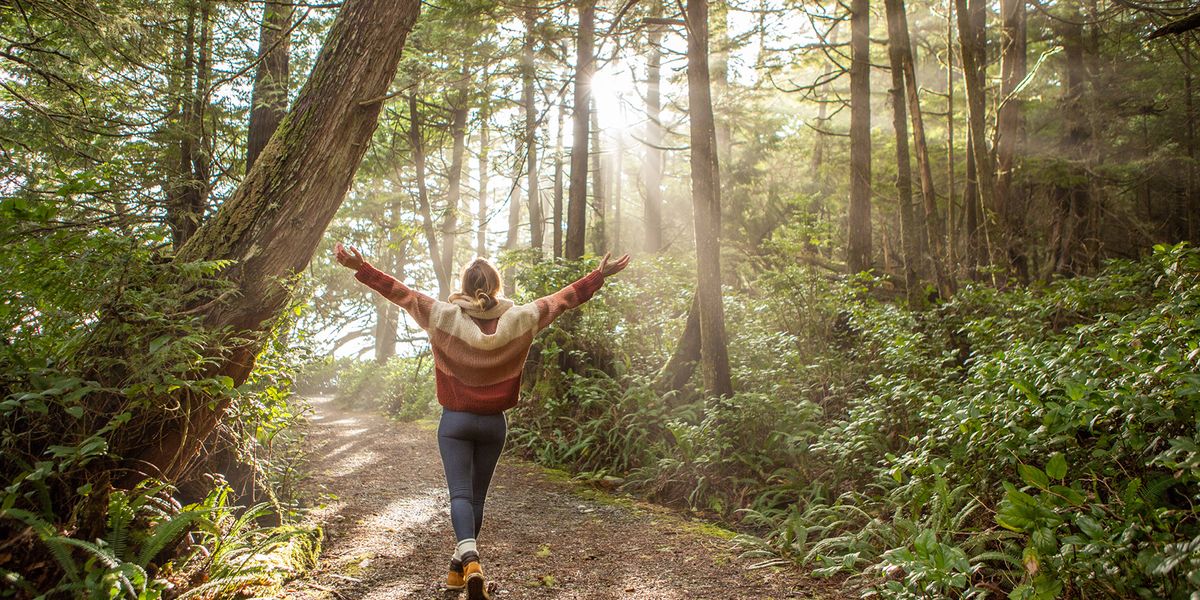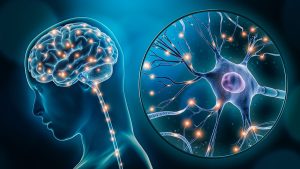Exploring the Concept of Nature Therapy
Understanding Nature Therapy
Nature therapy, also referred to as ecotherapy, is the practice of spending time in nature to foster growth and healing, especially concerning mental health. The idea is rooted in the concept that people are a part of their surroundings and that nurturing our relationship with the natural world can consequently encourage holistic wellness.
According to the American Institute of Stress, 77% of people regularly experience physical symptoms caused by stress and anxiety, and almost half acknowledged that stress had a negative impact on their personal or professional life. In an ever-accelerating urbanized world, nature therapy provides a unique, inexpensive mode of therapeutic intervention that works towards combating these statistics.
The Reciprocal Healing Approach
In a mutually beneficial process, being in the outdoors diminishes stress levels, catalyzes a feeling of serenity, and improves mental clarity. Simultaneously, the personal responsibility towards nature, such as tree-planting or tending to a garden, can cultivate feelings of accomplishment and purpose. A case study published in Mental Health and Physical Activity found that individuals that take part in nature-based activities experience improvements in their mood and self-esteem, lowering depression, anxiety, and stress levels.
Nature Therapy Practices
Key practices in nature therapy include forest bathing (a Japanese practice called Shinrin-Yoku), horticultural therapy, animal-assisted therapy, physical exercises in natural settings, and green meditation. A holistic approach to these practices is followed, where the focus is not on the activity but the overall experience of being one with nature.
Research cited by the National Institutes of Health points towards an array of psychological and physiological benefits tied to these activities – decreased heart rate, decreased blood pressure, increased immune function, and improved symptoms of ADHD, to name a few. The outdoors doesn’t just provide an escape; it is a dynamic, complex, and rich stimulation for the senses that fosters emotional, cognitive, and social development.
The Efficacy of Nature on Mental Health: Evidential Backing
Scientific Studies and Their Findings
The link between nature and mental well-being has been extensively studied, and the results are overwhelmingly favorable. A widely-cited study published by Stanford University in 2015 found that individuals who walked in a natural environment for 90 minutes showed decreased activity in the subgenual prefrontal cortex, a brain region associated with mental health disorders, compared to those who walked in an urban one. Furthermore, the University of Michigan conducted research that concluded that spending time in nature can improve memory performance and attention span by 20%.
Case Study: The Japanese Practice of Shinrin-yoku
The Japanese practice of ‘Shinrin-yoku’ or ‘forest bathing’ supports the fact of how connecting with nature benefits mental health. This concept encourages people to spend time in the forest as a way of enhancing their well-being. Surprisingly, the efficacy of this practice is not only based on ancient wisdom but is also supported by modern science. Studies in Japan have found that Forest Bathing trips can reduce concentrations of cortisol, a stress hormone in the body, lower pulse rate and blood pressure, and improve concentration and memory.
Correlation Between Urbanization and Mental Health Issues
The number of people living in urban areas has increased significantly over the past few decades. However, a variety of studies suggest that people who live in cities are 20% more likely to suffer from anxiety disorders and 40% more likely to suffer from mood disorders compared to people living in rural areas. Another concerning statistic is that those who are born and raised in cities are twice as likely to develop schizophrenia. Experts believe that this trend is due in large part to the lack of natural surroundings in urban environments and the isolation from nature exacerbates these mental health issues.
Nature’s Immediate Effects on Mood and Stress Levels
Exposure to nature doesn’t just have long-term mental health benefits; it can also have an immediate impact on our mood and stress levels. Green spaces provide a place for physical activity, advancing the production of endorphins- the body’s natural mood stabilizers. Research even suggests that just looking at images of nature can lower work stress and improve mood. Another study revealed that patients who had a view of trees from their hospital window recovered from surgeries more quickly, needed fewer pain medications, and had fewer post-surgical complications.
Overall, there is substantial evidential backing proving the efficacy of nature on mental health and its vast benefits.
Discovering the Nature-Human Connection: A Psychological Perspective
The Role of Nature in Cognitive Functioning and Emotional Well-being
Research suggests that nature relates strongly to our emotional and cognitive well-being. Interacting with natural surroundings aids attention restoration and stress reduction. Studies also indicate that natural elements have a calming effect on the nervous system, improve mental health condition, reduce stress, and foster creativity. For instance, the Ulrich’s research (1984) showed that individuals who viewed scenes of nature experienced quicker stress recovery compared to those who viewed urban scenes. Similarly, a Stanford University study indicated a reduction in ruminative, negative thoughts in individuals who took a 90-minute nature walk, compared to those who walked in an urban area.
The natural environment also promotes self-awareness and personal growth. By placing us in a larger context, nature helps us understand our place in the world, challenges our sense of self-importance, and fosters a sense of belonging. A study by Passmore & Howell (2014) highlighted that a stronger nature relatedness was associated with less anxiety, greater well-being, and greater happiness.
Green Exercise and Mental Resilience
Engaging in physical activities in natural environments, or “green exercise,” has been shown to have additional impacts on our mental well-being. The effects of green exercise on mental health are often immediate. Even short-term, single bouts of green exercise result in improvements in self-esteem and mood (Barton & Pretty, 2010). Research has shown that these mental health benefits increase with the diversity of the environment; the greater the biodiversity, the greater the psychological benefit.
Moreover, green exercise promotes resilience in the face of stress by building confidence, promoting adaptability, and providing a sense of coherence and belonging. A study involving more than 20,000 people in England revealed that people who spent two hours a week or more in green spaces were consistently more likely to report good health and psychological well-being than those who did not visit green spaces (White et al., 2019).
Nature, Mindfulness, and Purpose in Life
Inculcating mindfulness in everyday life can be greatly enhanced through nature. By dwelling on nature’s beauty and immensity, we can teach ourselves to be present in the moment. This helps us escape our ruminative thoughts and better manage stress and emotions. Evidence from a 2019 study, published in Ecopsychology, showed that participants who engaged in a mindful walk in nature experienced substantial benefits across various measures of psychological well-being, including reduced rumination and negative affect, improved positive affect and awe, and increased feelings of social connectedness.
Furthermore, this mindful attention to natural surroundings can deepen our understanding of life, yielding vitality and a sense of purpose. Inner peace fostered by a connection to nature facilitates introspection, leading us to more profound realizations of our individual life purposes, motivations, and values.
Healing Through Nature: Effects on Stress, Anxiety, and Depression
Physical Interaction with Nature: Stress Reduction
The physical aspect of interacting with nature plays a critical role in stress reduction. A study led by the University of Michigan found that taking a 20-minute “nature pill”, which simply implies a calm engagement in an outdoor environment devoid of urban settings, can lower the stress hormone cortisol by 10% **(Hunter, Gillespie, & Chen, 2019)**.
This efficiency is attributed to the peaceful and calming nature of the green environment. Mindful exercises such as taking a leisurely stroll in the park, leisurely bike ride, or enjoying the beauty of a serene landscape can significantly defuse stress, creating a tranquillity that overshadows the hustle of daily life.
Ecotherapy: Addressing Anxiety and Depression
Nature-based therapy, commonly known as Ecotherapy, has been proven to improve mental health, focusing on anxiety and depression. The logic behind this therapy is that the human-nature interaction can provide therapeutic effects that can help manage or shift the symptoms of these disorders.
A case study involving individuals undergoing six ecotherapy sessions revealed a significant reduction in depression, anxiety, and stress levels, alongside improvements in self-esteem and overall mood. Participants reported feeling more in control, happier, and claimed the experience was relaxing and grounding **(Burls, 2008)**. This points towards the powerful impact of nature on human psychology and its potential for holistic healing.
Nature-Based Mindfulness Activities to Enhance Personal Growth
Engaging in nature-based mindfulness activities is increasingly recommended for personal development. Such activities include forest bathing (a Japanese practice known as ‘shinrin-yoku’), gardening, bird watching or engaging in nature photography.
These activities prompt the mind to focus on the beauty, intricate details, and awe-inspiring aspects of nature, shifting away from problematic thoughts, worries, or anxiety-triggering aspects of one’s life. In the long run, they encourage a healthy mental state, promote enhanced stress management skills, and facilitate personal growth.
According to a survey conducted by Mind, the mental health charity, 94% of respondents said that green exercise – being physically active in a natural environment – improved their mood, supporting the idea that engaging with nature is instrumental for mental health and wellbeing (Mind, 2013).
The Role of Nature in Boosting Mood and Enhancing Cognitive Function
Alleviation of Mental Strain by Nature
In our increasingly urbanized lives, stress and anxiety are constant companions. Fortunately, nature can be instrumental in relieving these detrimental states. A 2015 Stanford University research showed that individuals who walked for 90 minutes in nature showed decreased activity in the part of the brain linked to depression. Comparatively, those who walked in an urban environment did not demonstrate the same decrease. Similarly, a study published in the Journal of Affective Disorders in 2013 concluded that even short-term exposure to green spaces reduced stress and improved mood.
Tuning into Nature & Cognitive Enhancement
Not only does nature enhance our emotional well-being, but it also improves cognitive function. According to a 2008 University of Michigan study, after an hour interacting with nature, subjects showed a 20% improvement in attention and memory performance. They concluded that natural environments are “restorative,” helping to replenish depleted attention resources. This effect proves beneficial, especially when it comes to tasks requiring sustained focus.
Nature as a Mental Health Prescription
In light of mounting evidence, doctors are explicitly leveraging the therapeutic effects of nature. In the US, if you reside in DC or San Francisco, the odds are you might get what is known as “park prescription.” Physicians prescribe patients with walking in parks as a non-pharmacological intervention to decrease disease symptoms.
Nature, Mood, and Creativity
Finally, engaging with the natural world can foster creativity. As per a study conducted by psychologists Ruth Ann Atchley and David L. Strayer, they found a whopping 50% increase in creativity and problem-solving ability after a group of individuals spent four days in nature, disconnected from all electronic devices. This acoustic and visual isolation from urban chaos allows us to tune into our own minds, sparking imaginative thinking and new perspectives.
In conclusion, exposure to nature contributes tangibly to both our mental well-being and cognitive performance. It relieves stress, soothes anxiety, enhances attention, boosts memory retention, fuels creativity, and even serves as a treatment for mental health problems. These effects serve as a clear reminder that we are intrinsically linked with the natural world and our personal development benefits profoundly from such connections.
Connection with Nature: A Pathway to Spiritual Awakening
The Spiritual Dimension of Nature Connection
The unpredictability and vastness of nature can often stir up feelings of awe and wonder within us. This emotional response can trigger reflective thinking and promote a wider perspective on life. When we stand at the edge of a cliff, or gaze at the expanse of the sea, or even witness the blossoming of a tiny seed into a full-grown tree, we experience a kind of spiritual elevation. We discover that we are a small part of an enormous universe and this recognition can bring a sense of peace and tranquility.
These self-realizations are not just conjecture — they are grounded in empirical research. In a study published in the Journal of Environmental Psychology, it was found that individuals who regularly spend time in nature have significantly higher life satisfaction and less mental distress. The enhanced emotional connectivity leads to spiritual enlightenment and personal growth.
From Mindfulness to Transcendence through Nature
The beauty of nature can often create a mindfulness experience. When we observe a bird in flight, the leaves rustling in the wind, or the sound of a flowing river, we become fully absorbed in the present moment. This state of heightened awareness heightens our emotional connectivity and sensitizes us to the vibrant life that surrounds us.
Interestingly, being in nature can also foster transcendental experiences pushing us beyond ordinary thought processes. We begin to comprehend the interconnectedness of all beings and develop a sense of universal responsibility. Numerous Eastern philosophies like Buddhism emphasize the need to achieve this state which they associate with Enlightenment. This psychological shift can further contribute to personal development by building empathy, kindness and a greater sense of purpose.
Nature as a Catalyst for Personal Growth and Spiritual Evolution
Nature, with its non-judgemental and infinite facets, provides a safe and nurturing space for introspection and meditation. Frequently, people going through traumatic incidents or personal upheavals are recommended forest therapy or nature retreats as therapeutic intervention. Herein, individuals are encouraged to interactively engage with nature, which then serves as a conduit for emotional healing and self-realization.
As an illustration, the practice of Shinrin-yoku or “forest bathing” in Japan has been adopted globally due to its immense psycho-spiritual benefits. A 2018 study published in the International Journal of Environmental Research and Public Health reported that forest bathing reduced cortisol (stress hormone) levels and improved mood states. Thus, engagement with nature is instrumental in triggering spiritual awakening and contributing to overall mental well-being and personal development.
With the increasing realization of nature’s medicinal effects on our minds, it is essential that we routinely immerse ourselves in its tranquillity to tap into our spiritual potential and enhance personal growth. Indeed, our relationship with nature is not merely recreational but profoundly healing and enlightening on diverse levels.
Harnessing the Power of Plants: An Introduction to Aromatherapy and Herbal Medicine
Explore the Healing Properties of Aromatherapy
Aromatherapy, the therapeutic use of essential oils extracted from plants, is an age-old practice that can greatly contribute to mental wellness. A study conducted by the University of Maryland Medical Center suggests that aromatherapy may have potential as an effective intervention to reduce stress, anxiety, and depression. For instance, the aroma of lavender essential oil has been shown to calm the nervous system, reducing blood pressure, heart rate, and skin temperature, thus inducing a state of relaxation. Similarly, the tangy scent of citrus essential oils such as lemon or orange aids in enhancing mood and increasing alertness.
Unlock the Magic of Herbal Medicine
Traditional herbal medicine illuminates how nature can be a powerful ally for personal development and mental well-being. According to the World Health Organization (WHO), an estimated 80% of people worldwide rely on herbal medicines for some part of their primary healthcare. With herbs such as St. John’s Wort being used quite effectively to treat mild to moderate depression and known for its mood-boosting properties.
In a 2005 study, published in the journal “Phytotherapy Research”, showed that chamomile not only reduces symptoms of anxiety but also helps combat insomnia. Moreover, herbs like Bacopa Monnieri have been utilized in the Indian Ayurvedic system of medicine for their cognitive enhancing abilities – contributing to improved memory and focus.
Integrating Aromatherapy and Herbal Medicine for Holistic Healing
Integrating both aromatherapy and herbal medicine could potentially create a comprehensive, holistic approach to mental health care. By harnessing this ‘power of plants’, one can foster an environment that feeds the soul with serenity, rejuvenates the body with healing energies and fortifies the mind with enhanced mental clarity.
For instance, while sipping on a cup of calming chamomile tea, you could infuse the room with the invigorating aroma of rosemary essential oil, known to boost mental activity. This practice of creating a harmonious balance between aromas and herbal remedies not only creates a captivating sensory experience but also synergizes their innate health benefits – thus contributing towards increased overall well-being and development.
Incorporating Nature into Daily Life: Practical Tips and Strategies
Everyday Exposure to Nature
The first and easiest step towards incorporating nature into daily life is ensuring that we engage with it daily. Simple changes like taking a daily walk in the park, adding some greenery to your workspace or home, sitting by a window where you can view greens or blues of nature, or even keeping the window open to let fresh air in, can have profound effects on our mental stability. For instance, according to a study, participants who worked in environments that included natural elements reported a 15% higher level of well-being than those in environments devoid of nature.
Planned Activities in Natural Settings
Scheduling regular activities in natural environments like picnics, gardening, biking, hiking, or bird-watching can immensely contribute towards personal development. A practice called “Shinrin-yoku” or “forest bathing” originated in Japan but is now practiced all over the world. The activity doesn’t necessarily mean bathing in a forest. It means being in nature, unplugged, quiet, and keeping all five senses open to it. A 2018 study showed that individuals who participated in a 20-minute “nature pill,” or moments of respite in nature, experienced substantial reduction in levels of cortisol, the human body’s primary stress hormone.
Utilize Technology
Utilize digital tools to make a better connection with the environment. Apps like ‘PlantSnap,’ ‘iNaturalist,’ or ‘Project Noah’ can help identify trees, plants, and animals, and foster a deeper connection and interest with the world around us. Virtual reality can also bring the outside world inside, especially for those living in urban environments or those who are physically unable to go outside. A study published in the Journal of Environmental Psychology found that people who watched a 360-degree VR video of a forest reported better moods afterward than those who watched a video of an urban environment.
Mindful Experience of Nature
Another strategy to get the most out of our interaction with nature is through mindfulness – the practice of being present and engaged in whatever you are doing, without distraction, and with an open mind. For instance, instead of just walking through a forest, take a moment to observe the bark of a tree, touch the leaves, inhale the fresh odor, or watch the sunlight filtering through the branches. According to the 2019 National Geographic publication, by using mindfulness in our experiences with nature, we can deepen our appreciation for the natural world and increase our intention to care for and preserve it.
Empowering Personal Development through Interaction with Nature
Improving Self-Confidence and Mood
Interaction with nature doesn’t only have benefits on mental health as one might initially think; it also plays a considerable role in self-confidence and mood enhancement. For instance, a study conducted in 2010 revealed that individuals who walked through a green, lush forest expressed lower levels of fear and anger compared to those who walked in urban environments. This shift in mood and mindset allows individuals to approach personal, social, and professional challenges with greater poise, equanimity, and confidence. Nature exposure has been linked to improved cognitive function and greater contentment, translating to better decision-making skills and patience.
The Teachings from Nature: Resilience and Adaptability
Nature is a powerful teacher, particularly with lessons on resilience, adaptability, and the innate capacity to grow and heal. Consider the life cycle of a tree: it encounters various seasons and weather conditions throughout its lifetime, yet it stands strong and continues to grow, adapt, and renew itself. Similarly, through interaction with nature, individuals can develop their resilience skills and nurture a more adaptable mindset that enables personal growth.
Moreover, a 2014 study by the University of Derby found tangible links between regular nature interaction and individual personal development progress. Participants reported better resilience, adaptability, and growth mindset scores when regularly spending time in nature, showing a significant correlation between nature and personal development.
The Role of Nature in Mindfulness and Self-Reflection
Lastly, nature offers an ideal environment for mindfulness and self-reflection, crucial aspects of personal development. When you are in nature, the simplicity and tranquility of the environment creates a powerful setting for introspection. In these moments, individuals can assess their goals, consider their strengths and weaknesses, and contemplate paths to personal growth and fulfillment.
Moreover, a study by Ruth Ann Atchley and David L. Strayer shows that nature can replenish the attention quota and encourage creativity, a pivotal factor in personal development. Participants who embarked on a four-day nature excursion showcased a 50% improvement in creativity-related problem-solving tasks.
Paying attention to the here and now – the texture of the tree bark, the rustle of leaves, the bird’s tune – can foster mindfulness awareness. As Matthieu Ricard, a Buddhist monk and a molecular geneticist, points out, “mindfulness can act as a foundation for many desirable mental qualities, like wellbeing and altruism”. All in all, nature can facilitate a profound personal development journey, empowering humans to embrace their full potential.
Case Studies: Successful Stories of Nature Guided Personal Transformation
1. Michael’s Journey: From Stressed to Relaxed
Michael, a 42-year-old corporate executive, was on the brink of a burnout due to continuous work pressure and limited social interaction. He sought help and counseling, and embarked on a journey of nature-guided personal transformation. A three-month stay in the tranquil mountain valley of Himachal, India, provided him with an enriched perspective towards life. The calming sight of endless mountain ranges, undisturbed natural habitat, and solitude transformed his psychological state. Michael returned to his corporate life but now practices mindfulness which includes dedicating a part of his day to connecting with nature, irrespective of his location.
2. Alice’s Healing Experience: Overcoming Trauma
Alice, the victim of a traumatic event, faced daily anxiety and regular panic attacks that disrupted her daily life. Under the guidance of a professional, Alice started to use nature as a therapeutic outlet. A period of nature-based therapy, combined with routine counseling, took Alice on a healing path. She spent weeks in a nature refuge and found joy in minute aspects like the rustling of leaves or the calmness of a flowing river. Not only did Alice overcome her anxiety, but she also found a renewed sense of purpose and courage in her life.
3. Sam’s Story: Escaping the City Life
Sam, once a successful but unfulfilled tech-giant in Silicon Valley, felt life becoming monotonous and uninspiring. He resigned from his position and moved to the exotic Iceland to pursue his passion for photography and nature. Its spectacular landscapes, diverse wildlife, ethereal Northern lights, and pristine glacial rivers washed over Sam with an incredible sense of peace. This profound experience turned around his life. Sam is now a celebrated nature photograph whose work continues to inspire and provoke thought in thousands of people.
4. Claire’s Transformation: From Depressed to Hopeful
Claire, a single mother battling postpartum depression, was in a tough spot. A close friend recommended nature-guided therapy. Claire moved to a small country town, surrounded by lush greenery and tranquil waters. Her initial days were challenging, but slowly, she started noticing a change in her behavior. The fresh air, calm atmosphere, and the rhythmic sound of chirping birds became a natural balm for her mental state. Claire now runs a successful home business and is a vehement advocate for nature-based therapy.
5. Alex’s Retreat: Rebuilding After Addiction
Alex, a young adult battling drug addiction, was searching for avenues for recovery that went beyond the conventional rehabilitation center. Eco therapy, a nature-based treatment program, was an unorthodox but life-changing solution for Alex. Living and engaging in a forest retreat, he was exposed to a completely new environment that triggered growth and self-development. His drug cravings decreased significantly, and he rediscovered his love for drawing and painting. Alex is now two years sober and continues to find solace in nature.








